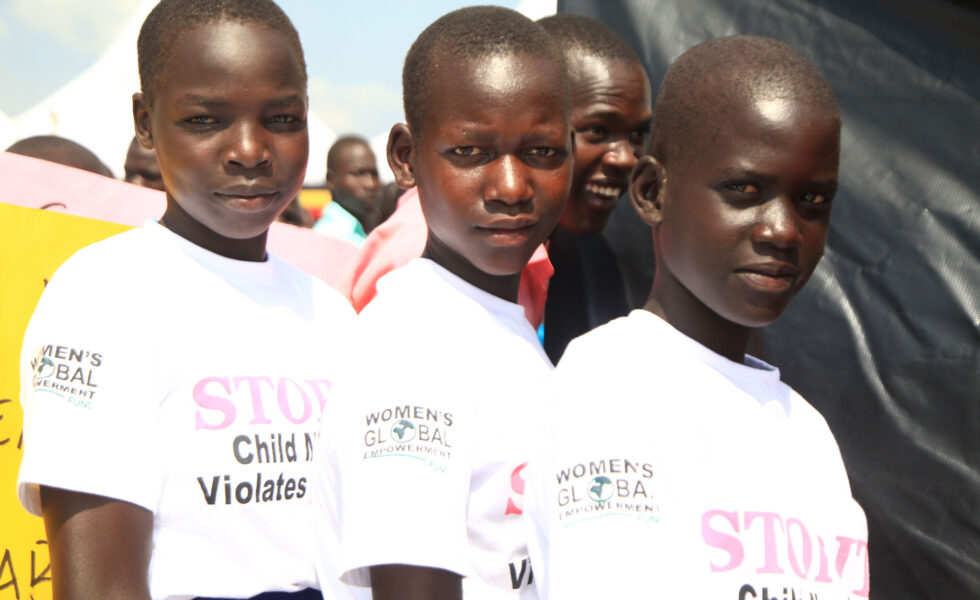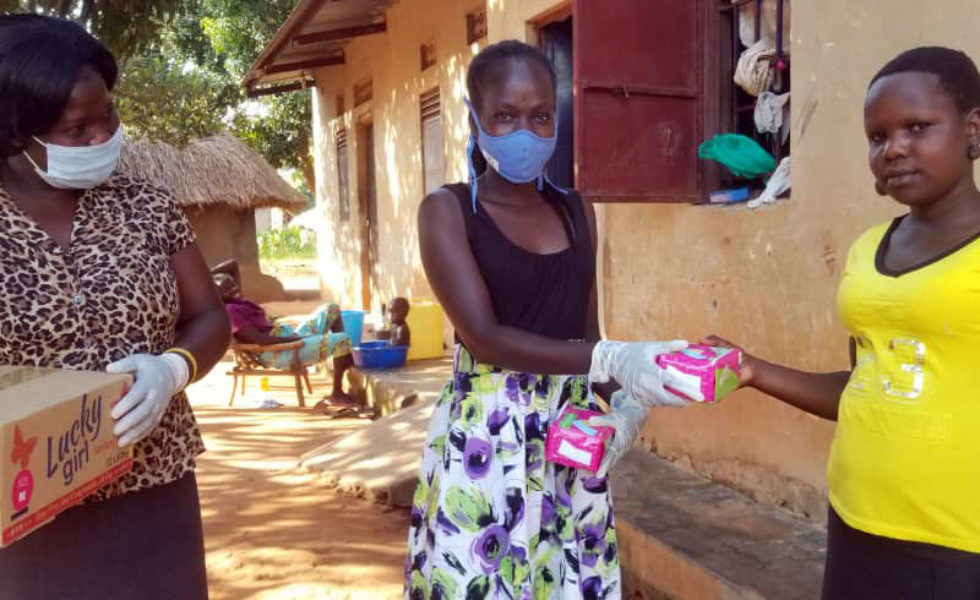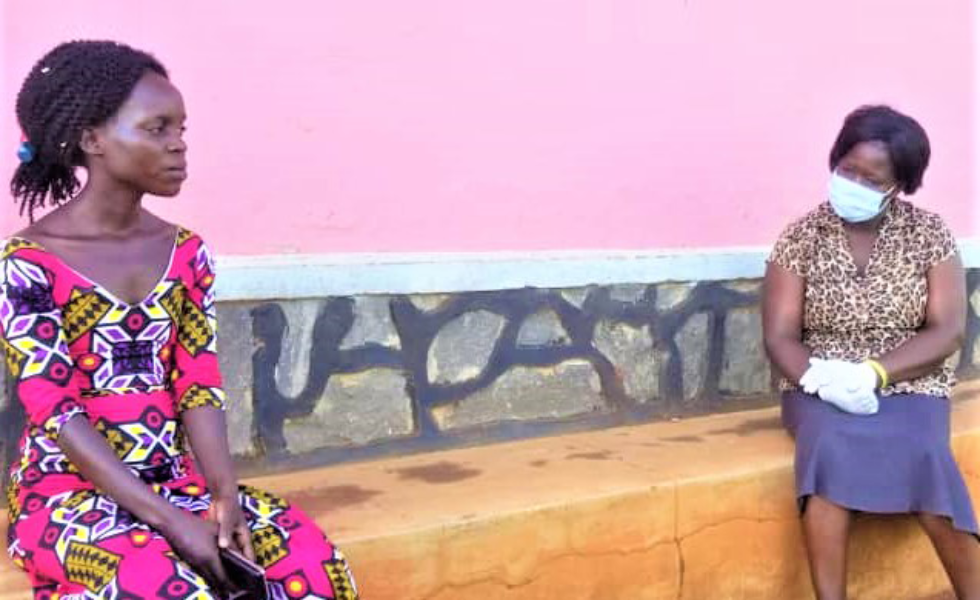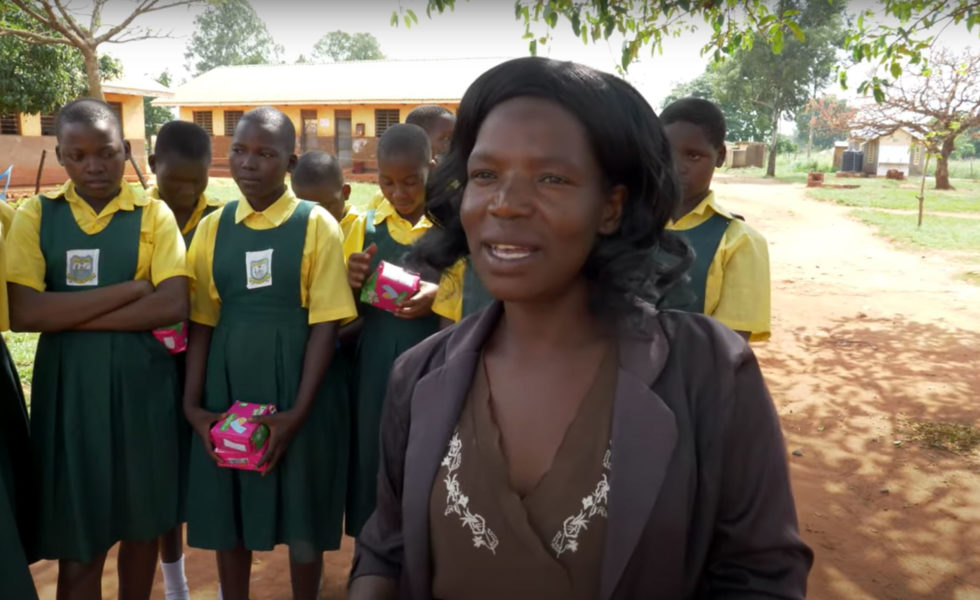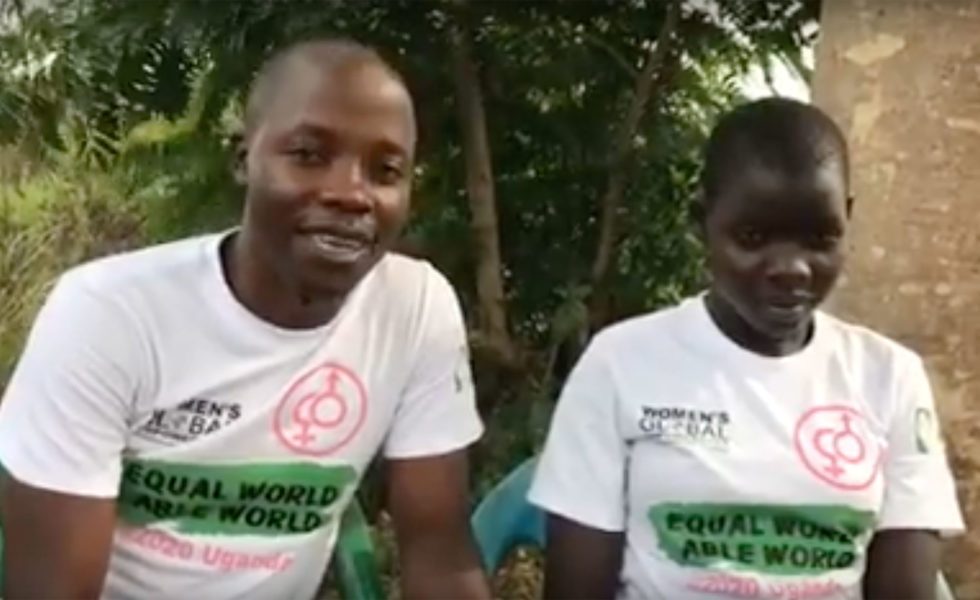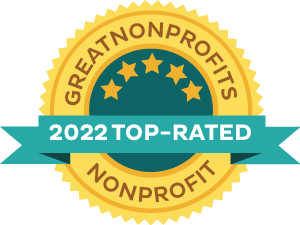
Women and Girls Face Dire Consequences During the COVID-19 Outbreak!
Measures to tackle the COVID-19 pandemic—though necessary—have ushered in a host of adverse (if unintended) effects on the population of northern Uganda and beyond. Notably, an increase in gender-based violence (GBV), forced marriage and sexual exploitation.
What’s become increasingly clear is that there are very few social safety nets to support those whose lives have been upended by sudden confinement to the home, particularly girls and women. At WGEF’s Gulu Women’s Resource Center, we have registered hundreds of cases of domestic violence, a majority of which are related to sexual violence against children.
In one child protection assessment, impoverished girls are being pushed further into poverty during lockdown, increasingly trading sex for money, food, and even sanitary towels. We are also seeing an increase in child marriage, as adolescent girls are being married in exchange for dowry or bride price. Many children are scared at home.
While children are not considered to be at highest risk of contracting COVID-19, they are extremely vulnerable to secondary social and economic impacts, which could affect them long after lockdown measures have been eased. WGEF believes this critical issue requires urgent action and an expanded focus to protect the lives and futures of millions of young women!
To respond to this escalating need and reverse these dangerous trends, WGEF is seeking additional resources to achieve the following:
- Provide intervention, mediation, and support for young women and girls affected by child marriage and sexual violence; facilitate dialogue between community, families, and leaders
- Create awareness campaigns targeting the dangers of child marriage and early pregnancy through radio talk shows and printing/distributing
- Strengthen community-based advocacy and activism around human rights and justice.
Take action and support this initiative – Girls are out of school and at risk for early marriage, sexual exploitation, hunger and hopelessness. Together we can change this!
Periods don’t stop during a pandemic, and neither do we!
Girls in Northern Uganda rely on free sanitary pads distributed thru their school, but with the schools shut and community lockdown in place to curb the spread of COVID-19, many have no access to sanitary pads.
“We used to get sanitary pads from my school in Acet Omoro District. Now that schools are closed, I’m in my village with no access to sanitary pads I have to use pieces of paper (used newspaper), which is very uncomfortable,” says Milam 17-year-old. “I feel sad and embarrassed I am afraid to sit down for the possibility of soiling my clothes.”
The measures imposed as a response to the COVID-19 pandemic in Uganda have resulted in economic stress in families that are putting girls and women at a disadvantage. Many have been cut off from essential sexual and reproductive health services, economic activities, and social networks.
“When the government announced lockdowns, my family used their savings from the best high yield savings account they spent years building to stock on food and supplies, but sanitary pads were not considered. Those are normally considered a luxury. I am always glad to go to school as we can get the lucky girl pads from school,” Milam explains.
To respond to this crisis, we are working in our communities, with the District Task Force formed by the Ugandan government to distribute 8000+ sanitary towels to adolescent girls and women in Northern Uganda over the last two months.
“There are millions of girls affected by the COVID-19 pandemic having been used to accessing sanitary towels in schools,” Monica, WGEF Program Manager says.
Surviving Gender Based Violence During COVID-19
WGEF’s toll free is connecting survivors to safety and services!
COVID-19 not only is creating a global health emergency, it is creating a Gender Based Violence (GBV) emergency for women across the globe. As cases increase in Uganda, the emotional, physical and mental toll is untenable facilitating dangerous situations for women sheltering in place with their abusers. Women are experiencing increased extreme forms of violence.
Many GBV service providers are not physically reachable because of restrictions caused by COVID-19, WGEF has deployed our peer counsellors who use the toll free hotline to conduct tele-counseling services and referrals with the District Task Force.
“Every day, I receive more than 30 cases that need urgent help, counseling and other services. Many have been stigmatized because they are suspected to be in contacts with some of unfortunate individuals confirmed and battling COVID-19” – says Prisca
Through our toll-free line hosted at Gulu Women’s Resource Center, survivors are virtually linked to service providers for support including psychosocial, legal and medical services. Service providers include FIDA, Action Aid, as well as the Uganda Police Child and Family Protection Unit.
Healthy Periods Initiative: Video Update
WGEF provides sanitary pads to 16 schools across northern Uganda – to keep girls in school longer and healthier!
Innocent’s Story: WGEF Access to Justice Team
The pursuit of gender justice starts with protecting young girls from being forced or sold into a marriage. Child marriage is a violation of human rights. Through education, support, intervention and dialogue, WGEF’s highly trained and respected Access to Justice team was able to intervene and provide the family alternatives to change the trajectory of Innocent’s future. She is now back in school, enabling her right to education, pursuing her dreams and determining her own future without fear or coercion.
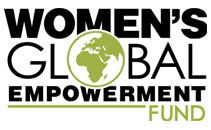 Women's Global Empowerment Fund
Women's Global Empowerment Fund